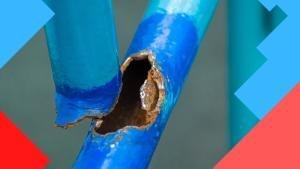Blog Post – Conserving Water In The Kitchen
A domestic kitchen uses a tremendous amount of water. There are many instances in your kitchen where you could be conserving water and reduce your water bill. Here are some ideas from our master plumbers.
The Dishwasher.
Dishwashers generally use a lot less water than washing dishes by hand. New dishwashers that are certified by Energy Star are more efficient and can save both water and energy. If you own a newer dishwasher, you can reduce the amount of rinsing you do before you put your dishes in the dishwasher since newer dishwasher models clean dishes more thoroughly than older ones.
Washing Dishes By Hand.
If you wash your dishes by hand rather than in the dishwasher, don’t let the water run while you’re washing. A good idea would be to fill a basin with water to wash the dishes and another basin for rinsing the dishes. This will save you a lot of water.
Washing Pots & Pans.
Pots and pans should ideally be soaked before being washed. Soak your pots and pans in a basin of water rather than letting the faucet run while you scrape your pots and pans clean.
Use The Garbage Disposal Sparingly.
The garbage disposal uses a lot of water. Use your garbage disposal unit only when necessary. A good alternative is to start a compost heap for your vegetable and food waste: you will save water every time.
Save Water While Cooking.
Food should be cooked in the smallest amount of water possible. This not only saves water, it also helps the food retain more of its nutrients. It is important that you select the correct pan size to do your cooking. A large pan needs more cooking water than you may actually need. You can reuse the water left over from cooking or steaming foods to make a soup – there’s another way for you to get your required eight glasses of water a day.
Washing Fruits & Vegetables.
You shouldn’t wash fruits and vegetables under running water. Instead, wash your fruits and vegetables in a pan of water. Running water should not be used to thaw food – for greater water efficiency and food safety, food should be defrosted in your refrigerator. When rinsing fruits and vegetables, collect the water you use and then use it to water your house plants.
Tankless Water Heater.
Consider installing a tankless water heater close to your kitchen sink so you don’t have to run the water while it heats up. These “water on demand” systems do not heat up an entire tankful if water every time you run the hot water faucet. This translates into significant cost savings due to reduced energy costs.
More Tips on Conserving Water From Our Master Plumbers.
– You don’t need a new glass every time you want to drink. Designate one glass for your drinking water each day and keep that glass around the whole day. Or use a water bottle and refill it every time you drink from it. Doing this will significantly reduce the number of glasses you have to wash each day. Teach family members to do likewise.
– Fill a pitcher with drinking water and keep it in the refrigerator instead of running the tap every time someone wants to drink. This is just another way to keep the water inside you instead of going down the drain.
– If you accidentally drop one or more ice cubes, don’t throw them down the sink – drop them into a house plant instead.



